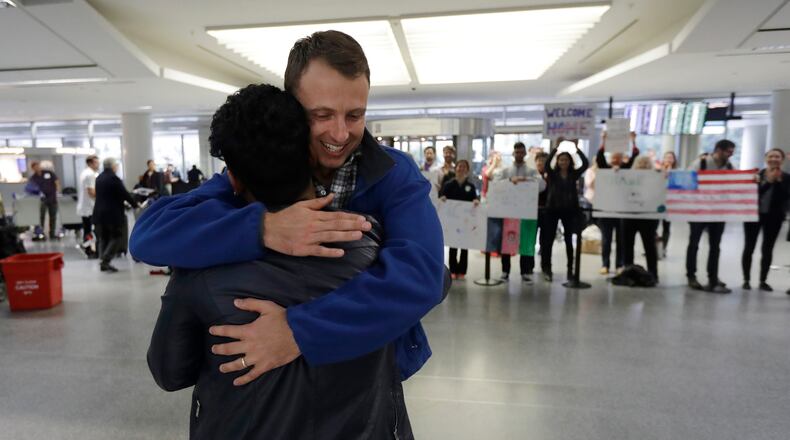Some background
>>What you need to know about the travel ban
On Saturday, Judge James Robart granted the request from the states, and issued a temporary restraining order (TRO) that blocked the travel ban.
On Tuesday, the Justice Department argued before a panel of the 9th Circuit that it is within the president's powers to decide who should be allowed to enter the country. They also argued that the two states did not have "standing" to bring such a suit. To have standing means that a person, or in this case a state, has a personal stake in the outcome of a trial – that they have or will be sufficiently affected by the other's actions.
What does the ruling mean?
What did the ruling say?
“In short, although courts owe considerable deference to the president’s policy determinations with respect to immigration and national security, it is beyond question that the federal judiciary retains the authority to adjudicate constitutional challenges to executive action.”
“Although we agree that ‘the government’s interest in combating terrorism is an urgent objective of the highest order’ … the government has done little more than reiterate that fact …
The government has pointed to no evidence that any alien from any of the countries named in the order has perpetrated a terrorist attack in the United States.”
“Although the government points to the fact that congress and the executive identified the seven countries named in the executive order as countries of concern in 2015 and 2016, the government has not offered any evidence or even an explanation of how the national security concerns that justified those designations, which triggered visa requirements, can be extrapolated to justify an urgent need for the executive order to be immediately reinstated.”
“While under ninth circuit precedent such orders are not typically reviewable, the panel ruled that due to the intense public interest at stake and the uncertainty of how long it would take to obtain a further ruling from the lower court, it was appropriate to consider the federal government’s appeal.”
“The states have offered evidence of numerous statements by the president about his intent to implement a ‘Muslim ban’ as well as evidence they claim suggests that the executive order was intended to be that ban …
The states’ claims raise serious allegations and present significant constitutional questions. In light of the sensitive interests involved, the pace of the current emergency proceedings, and our conclusion that the government has not met its burden of showing likelihood of success on appeal on its arguments with respect to the due process claim, we reserve consideration of these claims until the merits of this appeal have been fully briefed.”
What happens next?
Will this case end up in the U.S. Supreme Court?
Could President Trump write a new order?
About the Author
The Latest
Featured


